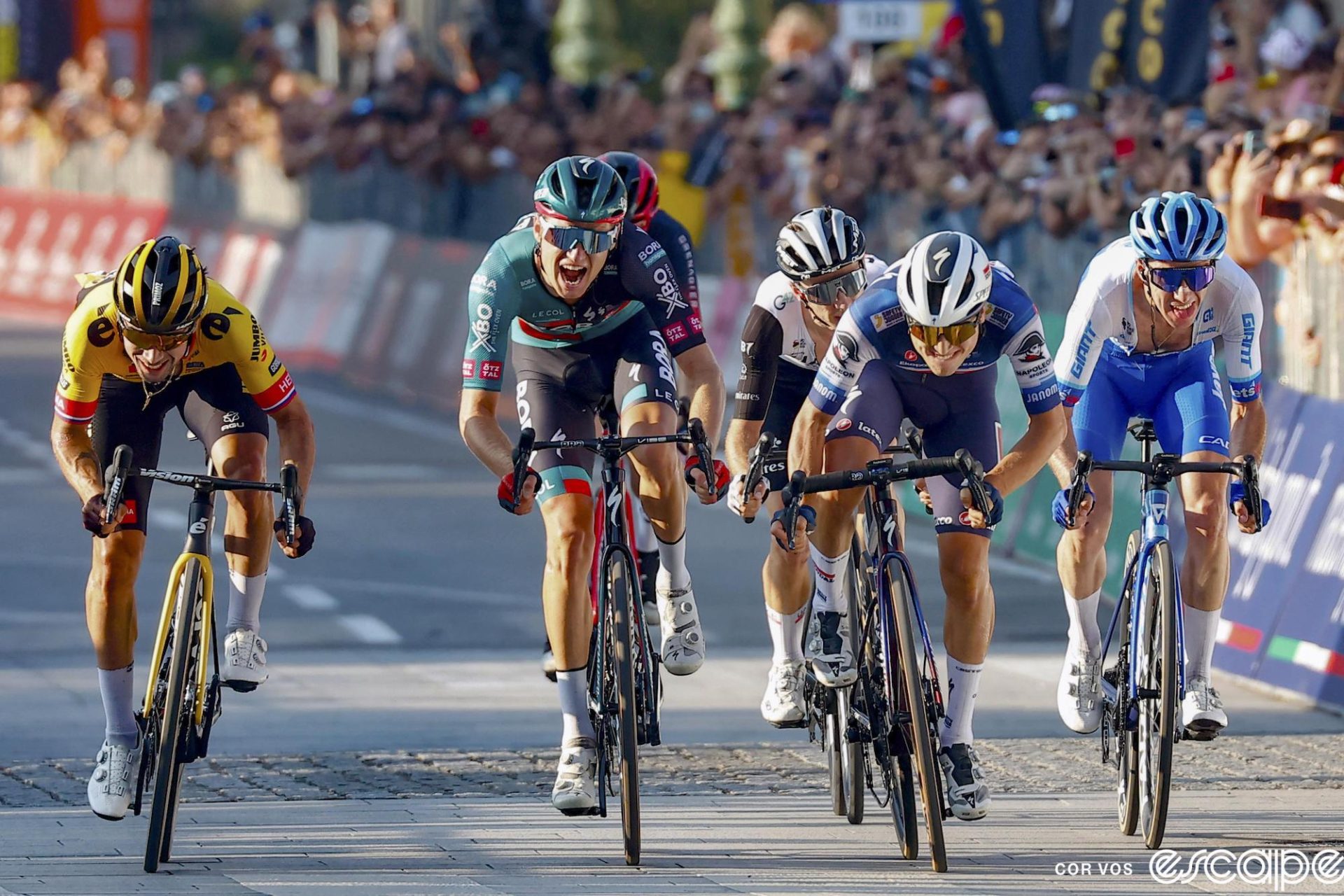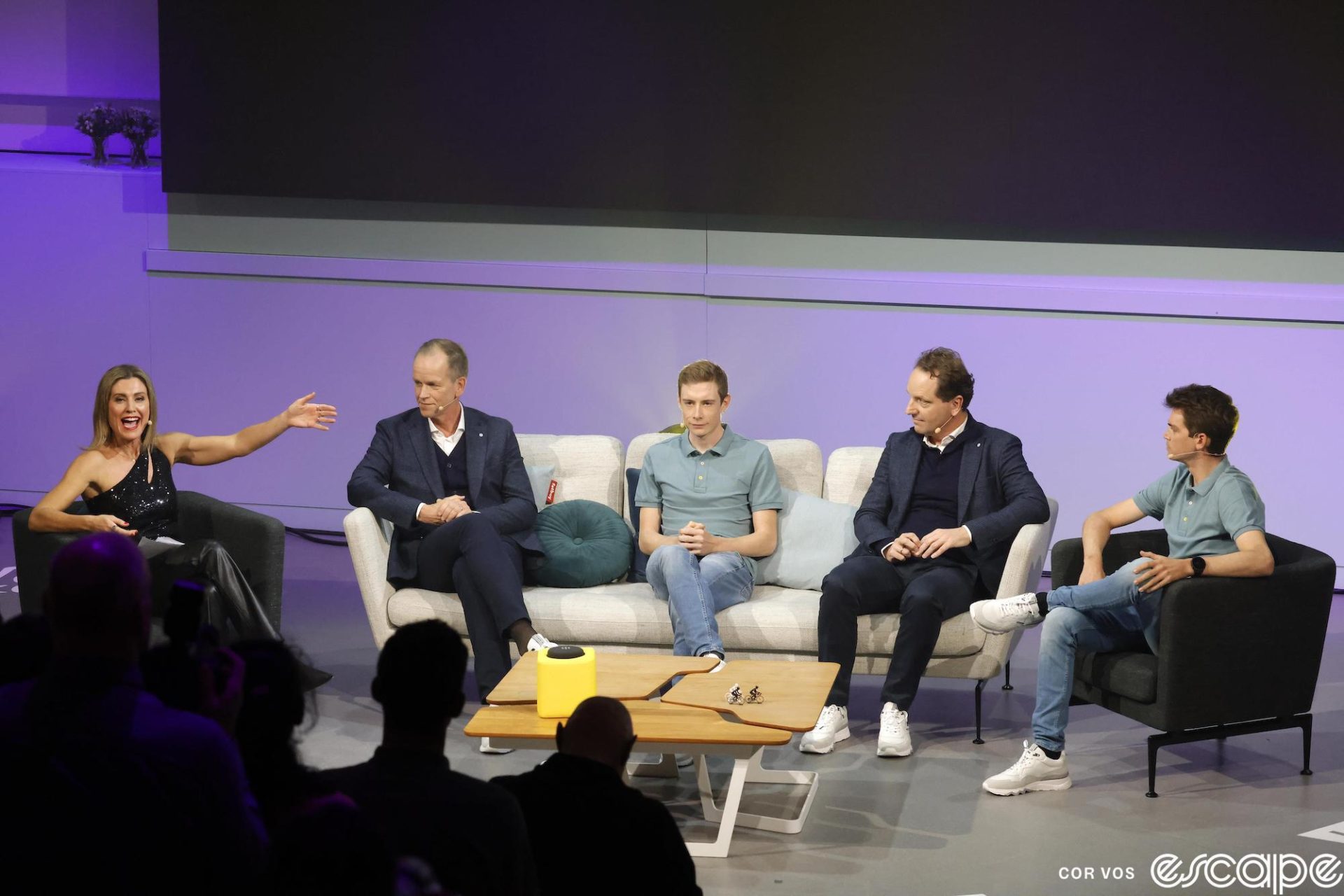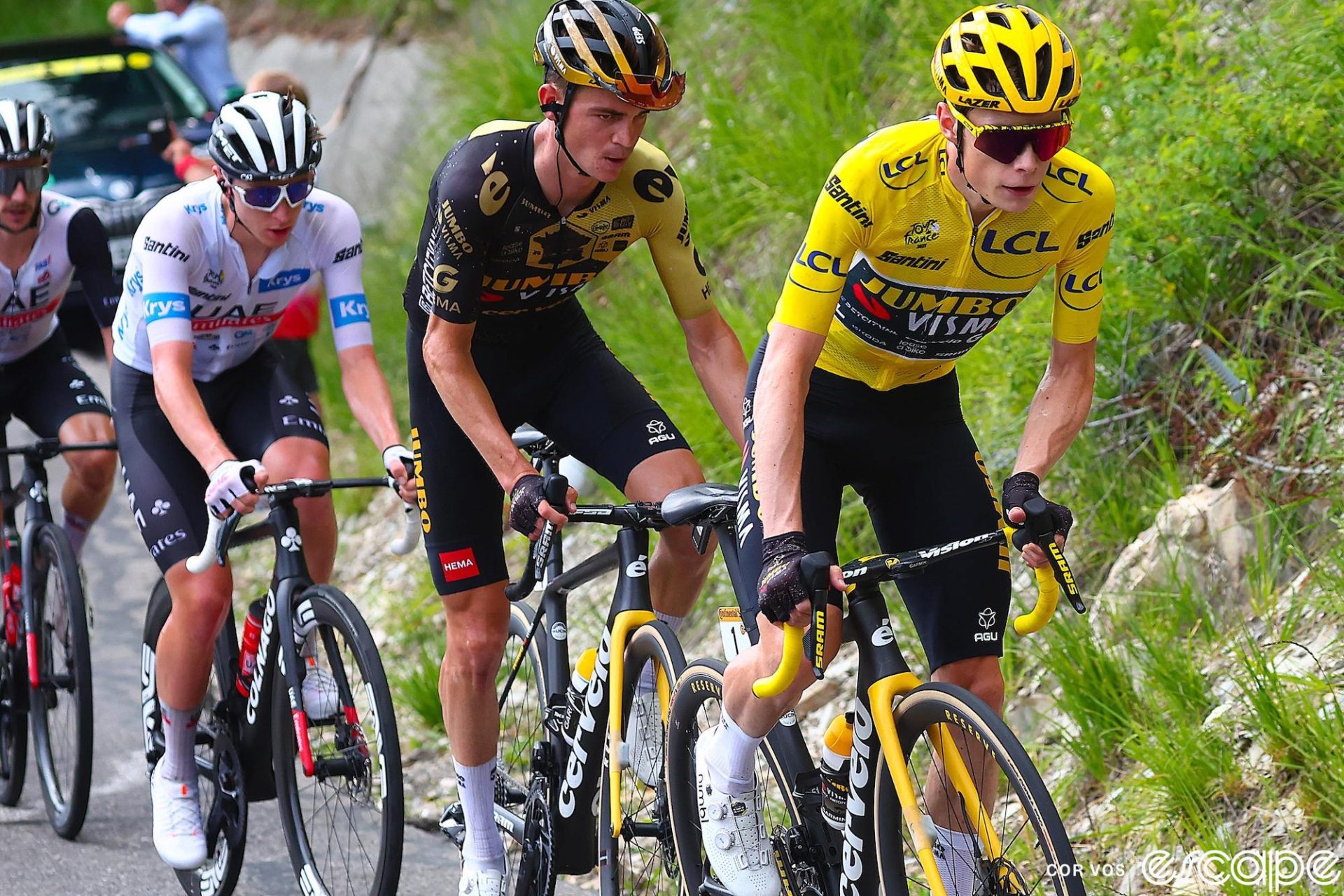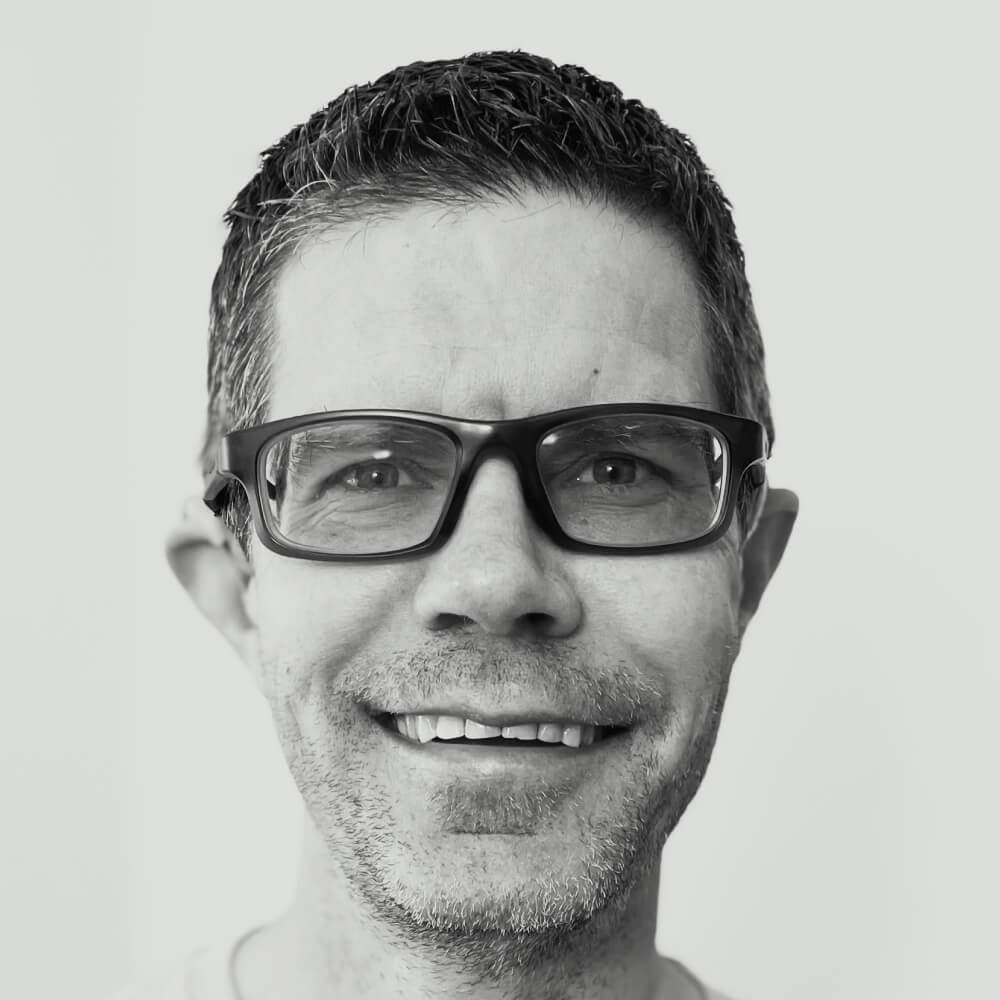Sepp Kuss and Aleksandr Vlasov raised some eyebrows recently with their joint declarations that they intend to ride as co-leaders with their respective team captains this season, even at the Tour de France.
Vlasov, whose uneasy shared leadership of Bora-Hansgrohe at the Vuelta España played a role in Cian Uijtdebroeks’ departure, said late last week to Bici.pro that he will race March’s Paris-Nice as a co-leader to new teammate Primož Roglič and that the same arrangement might take place at the Tour. “It doesn’t mean that I will start pulling for Roglič from the first kilometer,” he said of the Tour.
Then it was Kuss’ turn, with the American telling Wielerflits, “Obviously, it depends on how good I am. But strategically speaking, it doesn’t hurt to start [the Tour] with two leaders.”
That’s some, uh, bold talk, although moreso for Vlasov. The Russian’s best career Grand Tour finish is fourth overall; meanwhile, Roglič has finished on the podium in seven of his last 10 GTs, including four wins. Kuss, of course, proved his own Grand Tour chops with last year’s Vuelta win, but he also happens to ride for Visma-Lease a Bike, home of two-time defending Tour champion Jonas Vingegaard. Seems like the hierarchy is pretty clear, no?

But wait a minute: Co-leaders isn’t actually such a wild idea.
Last year, Adam Yates attracted similar attention for his comment that he would be a co-leader at the Tour for UAE Team Emirates. What sounded like bravado or strategic misdirection bore out with a stage win, a yellow jersey, and third overall. While UAE’s strategy ultimately faded along with Tadej Pogačar’s hopes in the Alps, had Vingegaard not been on a level of his own in the race’s final week, a co-leader arrangement might have been an ideal way to attack him. That is, after all, the exact approach Jumbo itself used to dethrone Pogačar in 2022.
Maybe we’re all a little jaded by years of dull Movistar tridents, but Kuss is right: it doesn’t hurt to start with two leaders. What’s more, given road cycling’s unique structure, where the sport is both individual and team, it’s maybe a surprise we don’t see it more often – or at least “support” riders’ ambitions discussed more publicly, like Vlasov and Kuss are doing now.
At the Tour of Oman, Bora director sportif Bernie Eisel told Escape Collective he likes to see a little spark from his riders. “That’s why they became so good, because they will always take on, if it’s an enemy if it’s a friend, they want to be the best and they want to show it,” he said. Roglič’s signing was a kind of notice to Bora’s existing GC riders like Vlasov, Jai Hindley, and others, said Eisel. “They know they have to deliver, and are like, ‘I’m not giving up my spot that easy.’”
The key – and the possible difference between Bora’s and Visma’s fortunes with the strategy – may be down to personal fit and esprit de corps.
Eisel said the team has come together well at training camps so far and lingers even after group dinners are over to “have a good chat and enjoy the time.” But according to Bici.pro, Vlasov and Roglič, at least, haven’t trained together much, and Vlasov’s rivalry with Uijtdebroeks at the Vuelta suggested some friction between the two.
Roglič, who left Visma’s crowded roster to have the full support of a team as he aims for that elusive Tour de France win, may entertain Vlasov’s ambitions at Paris-Nice, but pretty clearly wants to avoid any repeats of the Vuelta, where he wanted to race for the win.
For Visma, while Roglič is gone, whether the team has smoothed over any lingering Vuelta tensions between Kuss and Vingegaard matters deeply insofar as how those two will race together.

In his initial comments, Kuss again pointed to his Vuelta win as sparking a shift in self-image. “The Vuelta made me have more confidence in myself,” he said. “Am I capable of winning the Tour? Yes, why not. You have to shoot for that.” But that doesn’t mean he’s unwilling to sacrifice for Vingegaard, he added in a later interview at the Volta ao Algarve.
What Kuss is doing now is trying to ride the line between his new ambitions and his reputation as the steadfast and loyal teammate. To him there’s no inherent contradiction there, but there is a Catch-22 in the media’s and fans’ expectations and reactions to his comments about his hopes and goals.
“People just read a headline, and then they think I don’t have my head on my shoulders,” he said in the second interview. “But if I say that I just want to help, then people say I don’t have ambition, and if I say I want to try for myself then people say I only won the Vuelta because of a race situation. That’s true, but I also have to shoot for something myself.”
Statements like Kuss’ and Vlasov’s make headlines because they’re unusual. In cycling’s hierarchy, riders are expected to subsume their own competitive drive in service of the team and make careful, anodyne statements about total support for their leader.
But that’s not reality; as Eisel said, these riders got to this point because they are so good, and that doesn’t happen without ambition. The Tour is a long way off; rosters will change due to illness and injury and form. Those are all manifestations of “the road will decide.” And it will, but the riders themselves have a big say, and two of them at least are unafraid to speak plainly about it.
What did you think of this story?


